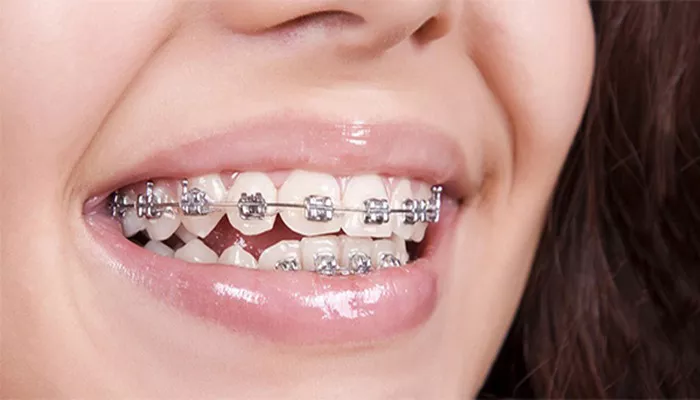Having braces can be an exciting step toward achieving a straighter smile, but it often comes with some discomfort. One of the most common complaints from people wearing braces is tooth sensitivity. If you are experiencing sensitivity in your teeth after getting braces, you may be wondering: Is this normal? This article will explore the theoretical basis of tooth sensitivity with braces, why it occurs, and what you can do to manage it effectively.
What Causes Tooth Sensitivity with Braces?
Tooth sensitivity is a common occurrence for individuals wearing braces, and understanding the underlying causes can help ease concerns.
1. Tooth Movement
The primary reason for tooth sensitivity with braces is the movement of the teeth. Braces apply consistent pressure on the teeth to gradually shift them into their correct positions. This pressure can cause the surrounding tissues and nerves to become temporarily inflamed, leading to sensitivity. The sensitivity may worsen after an adjustment visit when the wires are tightened.
2. Enamel Wear and Tear
Braces can also contribute to enamel wear, especially if improper brushing techniques are used. The friction caused by brackets and wires on the tooth surface can wear down the enamel, leading to increased sensitivity. Additionally, individuals may find it harder to brush their teeth effectively around the braces, leading to a buildup of plaque and increased chances of tooth decay, which can also make teeth more sensitive.
3. Gum Inflammation
Braces can irritate the gums, particularly in the early stages of treatment when the teeth are still adjusting to the pressure.
Inflamed gums can cause discomfort and may indirectly contribute to increased tooth sensitivity.
Is Tooth Sensitivity A Normal Side Effect of Braces?
Yes, it is entirely normal to experience tooth sensitivity while wearing braces. This sensitivity typically happens within the first few weeks after getting braces and after each adjustment. The sensitivity usually decreases over time as the teeth settle into their new positions. However, it can vary from person to person.
Theoretical Basis for Sensitivity
The primary explanation for tooth sensitivity with braces lies in how braces work. Braces apply pressure to move the teeth into better alignment, and during this process, the bones and tissues surrounding the teeth shift as well. This pressure affects the sensory nerves in the teeth, causing them to become temporarily more sensitive. As the teeth continue to move and adjust to their new position, the nerves in the teeth might react more sensitively to external stimuli like cold, hot, or sugary substances.
How Long Does Tooth Sensitivity Last with Braces?
Tooth sensitivity is often most intense during the first few days following a visit to the orthodontist for adjustments.
However, this discomfort tends to subside within a few days to a week. For many people, the sensitivity will gradually diminish over time as they become accustomed to the braces. In general, after the initial few weeks of wearing braces, tooth sensitivity should improve.
For some individuals, occasional sensitivity might persist throughout the course of treatment, particularly after regular adjustments. However, this is not typically a cause for concern and is generally considered a normal part of the orthodontic process.
When Should You Be Concerned About Tooth Sensitivity with Braces?
Although mild tooth sensitivity is common with braces, there are times when you should reach out to your orthodontist.
These include:
Severe Pain: If your sensitivity evolves into severe pain that doesn’t subside after a few days, or if you experience throbbing pain, it could be a sign of an issue such as tooth decay, gum disease, or an improperly adjusted wire.
Swollen or Bleeding Gums: If you notice swelling, bleeding, or signs of infection around the braces or gums, it could indicate poor oral hygiene or another issue that needs attention from your orthodontist.
Misaligned Braces or Wires: If you feel sharp pain from a broken or misaligned bracket or wire, this could be contributing to the sensitivity. It is essential to have the issue addressed promptly.
Tips for Managing Tooth Sensitivity with Braces
If you’re dealing with tooth sensitivity while wearing braces, there are several steps you can take to manage the discomfort effectively:
1. Use a Soft-Bristled Toothbrush
Switch to a soft-bristled toothbrush to avoid further irritating the teeth and gums. A softer brush will still effectively clean the teeth without causing unnecessary friction or discomfort on the enamel.
2. Use Toothpaste for Sensitive Teeth
There are specially formulated toothpastes available that are designed for individuals with sensitive teeth. These toothpastes contain ingredients like potassium nitrate or strontium chloride, which help block the nerve sensations causing discomfort. Using such toothpaste can help alleviate the sensitivity you experience while wearing braces.
3. Avoid Trigger Foods
Certain foods and drinks can exacerbate tooth sensitivity. Hot, cold, or sweet foods may trigger discomfort in your teeth. Try to avoid these foods during the first few days following an adjustment to allow the sensitivity to subside.
4. Orthodontic Wax
If the brackets or wires are causing irritation on the inside of your mouth, orthodontic wax can help reduce discomfort. This wax is applied directly to the brackets to create a smooth surface that prevents rubbing against the soft tissue of the mouth.
5. Regular Dental Checkups
Maintaining regular dental visits is essential when wearing braces. Your dentist can ensure that your teeth and gums are healthy, check for signs of decay, and help you manage any issues that arise during your orthodontic treatment.
Conclusion
In conclusion, tooth sensitivity while wearing braces is a common and normal part of the orthodontic treatment process. It is caused by the pressure applied to the teeth during movement and the adjustment of the braces. While the discomfort can be bothersome, it typically improves over time. To manage sensitivity, proper oral hygiene, using toothpaste for sensitive teeth, and avoiding trigger foods can all help alleviate discomfort. If sensitivity becomes severe or prolonged, consult with your orthodontist to rule out other issues.

